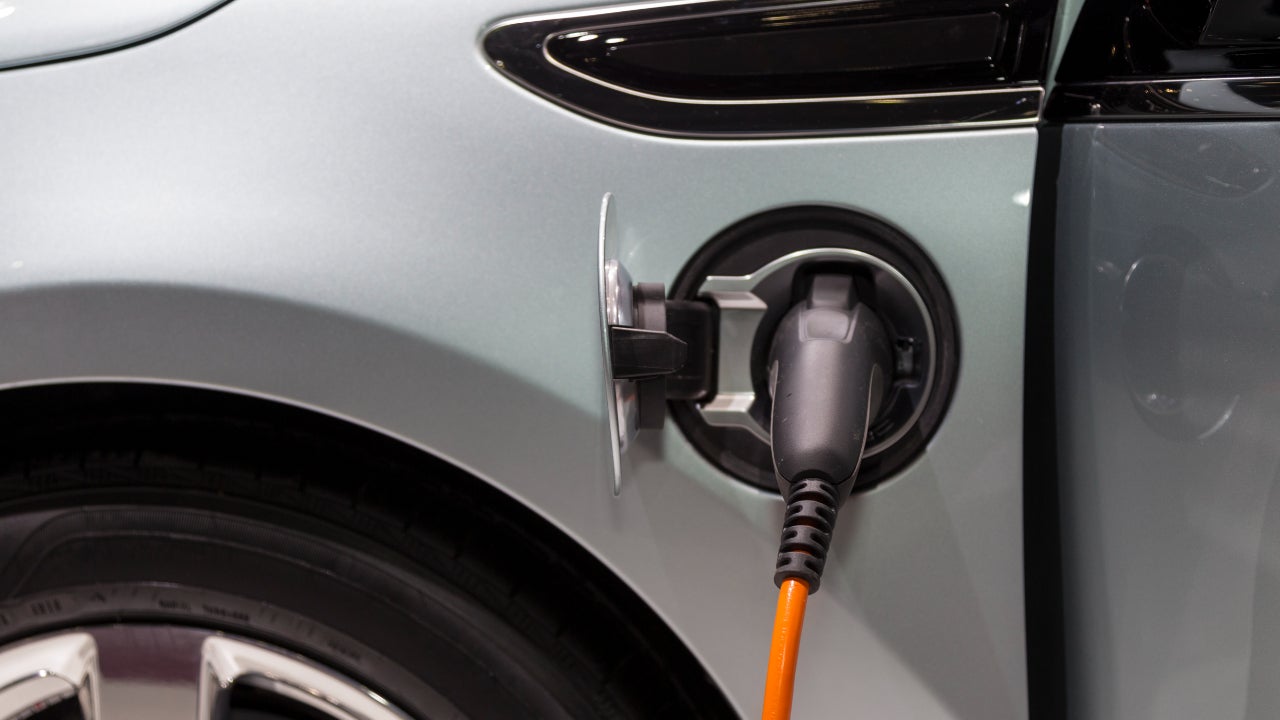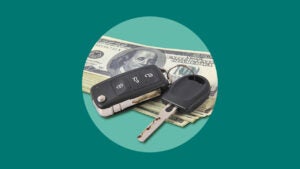How do car rebates work — and how do you get one?

Key takeaways
- A car rebate is a flat sum taken off the price of a car, often totaling thousands of dollars.
- A rebate may only apply to more expensive trims or if you finance with the manufacturer, although it can vary.
- Generally, if the rebate is for a car you want and you meet the requirements, it can be a solid way to save money on a car.
New cars averaged $48,623 in October 2024, according to Kelley Blue Book. With car prices this high, rebates can be a helpful way to save on the most recent models and more expensive trims.
Rebates give you money back on your purchase, which will lower your total loan amount. However, manufacturers and dealers structure their incentives differently. Before buying a new car, be sure the rebate will actually save you money.
What is a rebate on a car?
A rebate on a car is an incentive that gives you cash back after the purchase. This serves as motivation for you to buy a specific model or trim on a new car, and often, the rebate is attached to financing through the manufacturer’s lending arm.
Since rebates are typically offered by manufacturers, you will need to go to a dealership that works directly with the manufacturer. Be sure to check any eligibility requirements set by the manufacturer first. You may have to meet a minimum credit score or finance through a certain lender.
You may also need to select a certain trim, usually one of the higher-end options, in order to qualify.
How do car rebates work?
Auto rebates are special promotions that offer buyers a few thousand dollars off the price of the car. This doesn’t impact the original car price before the rebate is applied, so you can and should negotiate with the dealer before discussing rebates. The rebate will then lower the total amount you pay for a vehicle.
Rebate offers may last anywhere from a couple of weeks to a few months, and you will have to meet specific criteria to qualify. For instance, you may have to select a certain type of car or apply for dealership financing.
An auto rebate can be sent directly to you, but it can also be part of your down payment. This means you need to finance less overall, typically saving you money both upfront and over the life of your car loan. In some states, you may even be able to have the rebate applied to the purchase price before taxes, though you’ll need to confirm your state’s rules before requesting a rebate.
Where to find a car rebate
Rebates are pretty common, so you don’t have to look far to find them. If you are interested in using a car rebate with your vehicle purchase, consider checking these parties for more information.
To find a rebate, search for manufacturer deals on new cars — rebates are typically advertised alongside lease deals and special interest rates.
- Banks and credit unions
- Kelly Blue Book
- Edmunds
- Dealer websites
- Manufacturer websites
- Online automotive forums
You can also check trusted websites like Edmunds or Kelley Blue Book to see what models and trims have special lease offers attached. For some people, this may be a lower-cost alternative to a new car, even after the rebate is applied.
Is an auto rebate a good idea?
Auto rebates are worth looking into when you plan on buying a new car or pursuing dealership financing. They can be applied to your down payment, closing costs or total loan amount. In some cases, your total cost to own could be lowered by several thousand dollars.
However, you shouldn’t purchase a vehicle simply because of a rebate. In most cases, the selection of vehicles available for a rebate will be limited, and most rebates are restricted to new vehicles — and often, the higher-cost trims of those models. The draw of a rebate could tempt you to overspend on a car that doesn’t suit your needs or budget. Take time to learn about how much car you can afford before you visit the dealership.
Other types of auto rebates
Rebates lower the final price of the vehicle upon purchase and come from the manufacturer. They most often come as cash or go towards the down payment, though they can be applied in other ways, like towards closing costs. However, cash rebates are not your only option. Some other types of rebates include:
- Dealer cash incentives: These cash incentives go between the manufacturer and the dealer, lowering the price of the car. The prices of the cars listed often include these incentives.
- EV rebates: You might find rebates specifically available for electric vehicles. Edmunds has a whole page where you can search for EV rebates, tax credits and other incentives. You may even find rebates for EVs available through your state. Some programs may apply to hybrids as well.
- Other incentives: Some dealerships offer more specialized cash back, like loyalty rebates or bonus cash to certain buyers like military personnel. There are also non-cash incentives, like vehicle equipment upgrades or aftermarket warranties.
Auto rebate vs. low-interest financing
Auto rebates and low-interest financing, such as a 0 percent APR deal, save you money differently. A rebate gives you a flat amount of money, often applied to your down payment, closing costs or the final price of the vehicle. You then have a lower amount to pay overall. Low-interest financing is similar to how rebates work on cars, but this option focuses on cutting down the interest you pay each month.
An auto rebate could save you the most money on your car overall, depending on how much the rebate covers. Even though you will pay interest on your loan, it will be interest on a lower amount. A 0 percent APR offer will also save you money over time, but the primary benefit is paying less interest on your loan.
People with good credit may get the best of both worlds — taking a rebate from the dealer and finding a low auto loan interest rate from an a bank, credit union or online lender.
Bottom line
The key to knowing if auto rebates are a wise financial choice is how much the incentive could save you. At the end of the day, the car rebate is well worth it if it saves you money on your overall purchase. You just have to know how car rebates work and where they are available.
Look for rebates on car models that you are already considering and make sure you understand how that rebate will be applied. A car financing calculator can help you compare your options so you can see how much you will save over time with different financing options.
You may also like

What is the APR on a mortgage?


EV tax credit: What to know before you buy



